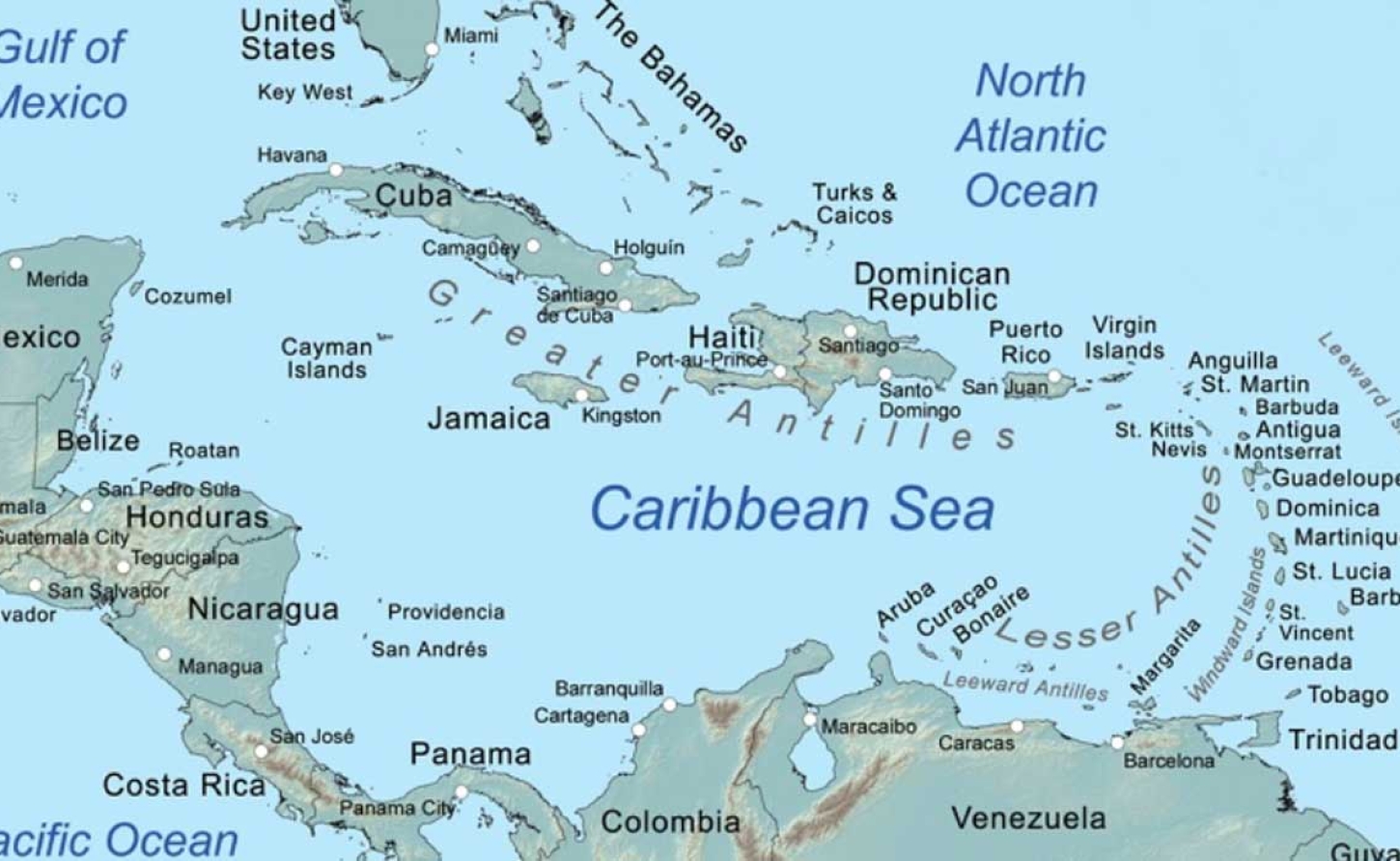CARIBBEAN | Zone of Peace, Theater of War: Washington's Caribbean Hypocrisy

MONTEGO BAY, Jamaica, September 14, 2025 - The Caribbean has been pleading for peace. For years, island nations have called for their region to be designated a "zone of peace," begging the United States to stem the flood of guns and ammunition pouring south from American shores—weapons that have turned Caribbean streets into killing fields.
Those pleas have fallen on deaf ears in Washington, where the only response has been to escalate militarization to unprecedented levels.
As Defense Secretary Pete Hegseth touched down in Puerto Rico this week, followed by ten F-35 fighter jets and naval destroyers, the message was unmistakably clear: the Caribbean isn't a zone of peace—it's America's theater of war.
The Gunrunning Highway
The bitter irony cuts deep. While the Trump administration deploys warships to fight alleged "drug cartels," thousands of American firearms flow unchecked into Caribbean hands daily, fueling the very violence Washington claims to combat.
From Miami gun shows to Puerto Rican streets, from Texas dealers to Jamaican gangs, the weapons pipeline operates with the efficiency of a well-oiled machine.
These aren't just statistics—they're death sentences written in American steel. In Jamaica, Trinidad, Puerto Rico, and across the region, families bury children killed by weapons that began their journey in American gun stores.
The same government that lectures about Venezuelan "narcotraffickers" has created a gunrunning superhighway that makes Pablo Escobar look like a small-time dealer.
Yet instead of addressing this American-made catastrophe, Washington responds with more weapons, more military exercises, and more violence.
Blood in the Water
The administration's true priorities crystallized last week in a horrifying display of state terrorism. A U.S. drone obliterated a boat allegedly carrying "drug traffickers," killing eleven people. When survivors struggled in the water, the drone struck again, ensuring no witnesses remained.
This wasn't law enforcement—this was execution by remote control, carried out in waters the Caribbean has desperately tried to declare peaceful.
The legal justification? The boat supposedly posed a "direct threat to U.S. national security"—a fiction so transparent it insults basic intelligence. The boat had attempted to turn back to shore before being vaporized, yet the Pentagon pressed ahead with what can only be described as a war crime disguised as drug interdiction.
The Toxic Return
For Puerto Ricans, this militarization reopens wounds that never fully healed. For sixty years, the U.S. Navy used Vieques as its personal bombing range, raining down live ordnance, napalm, Agent Orange, and biological weapons on a community of 9,000 people.
The result? Cancer rates that dwarf regional averages and health crises that persist two decades after the Navy's withdrawal.
The bombers may have left in 2003 following massive protests, but the F-35s now circling overhead prove the imperial mindset remains unchanged. Puerto Rico isn't a homeland to protect—it's a military asset to exploit.
Venezuela in the Crosshairs
Make no mistake—this isn't about drugs. Every military move screams regime change. The deployment of strike aircraft to Guyana, locked in a border dispute with Venezuela, removes any doubt about Washington's intentions.
President Nicolás Maduro's conciliatory gestures mean nothing when the war machine has already been set in motion.
The "drug cartel" framing insults Caribbean intelligence. While narcotics certainly flow through the region, the real crime in Washington's eyes is any government that refuses to surrender sovereignty to American corporate interests.
The drug war has always been a convenient pretext for intervention—ask any Latin American who survived the 1980s.
The Governor's Complicity
Puerto Rico's right-wing governor, Jennifer González, has eagerly embraced her role as Washington's Caribbean enforcer, branding Puerto Rico the "U.S. border in the Caribbean" and parroting Pentagon talking points.
Her enthusiasm exposes the fundamental contradiction of Puerto Rico's colonial status—a territory whose people cannot vote for president yet must watch their homeland become a staging ground for wars they never chose.
Imperial Patterns
This playbook isn't new. Puerto Rico's bases facilitated coups in Guatemala (1954), invasions of the Dominican Republic (1965), Grenada (1983), and Panama (1989). Each time, Washington promised security. Each time, the result was death and deeper dependency.
Now, as Caribbean leaders continue their futile appeals for peace while American weapons flood their streets and American drones patrol their waters, the message from Washington couldn't be clearer: the Caribbean will be peaceful when America decides it serves American interests.
The region's calls for a zone of peace aren't just being ignored—they're being answered with a zone of war. And the weapons fueling both crises bear the same "Made in USA" stamp.
-30-
